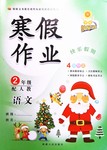
I _________ great progress in English since I _________ reading novels in English.
A. am making; begin B. have made; began
C. had made; began D. was making; begin
B
【解析】
试题分析:句意:自从我开始读英语小说以来,我在英语上取得了很大的进步。am making 现在进行时;have made 现在完成时;had made 过去完成时;was making 过去进行时;begin 开始;began 过去式。根据句意可知,开始读英语小说是过去的事情,应该用一般过去时;since常和现在完成时连用,故选B。
考点:考查动词时态。
考点分析: 考点1:动词和动词短语 就是表示动作和状态的词。根据其在句中的功能,动词可分为四类,分别是:实义动词、系动词、助动词、情态动词。 动词分类及用法 一、实义动词 实义动词又叫行为动词,分成及物动词和不及物动词 。 1、及物动词是必须带宾语的动词,可分为如下两类。 1) 及物动词+宾语例:I love my home. 我爱我家。 He bought an English dictionary. 他买了一本英语词典。 2) 及物动词+间接宾语+直接宾语例:She taught us maths. 她教我们数学。 My mother gave me a new pen. 母亲给了我一支新钢笔。提示:常用的能接双宾语的及物动词有:give, teach, buy, lend, find, hand, leave, sell, show, read, pay, make, offer, build, pass, bring, cook等。 2、 不及物动词不及物动词不需要跟宾语,本身意义完整。例:She came last week. 她上周来的。 It is raining hard. 正下着大雨。 Class began at half past seven. 7点半开始上课。 What happened yesterday? 昨天发生了什么事? 3、同一动词有时可用作及物动词,有时可用作不及物动词。例如:She can dance and sing. 她能唱歌又能跳舞。(sing在此用作不及物动词。) She can sing many English songs. 她能唱好多首英文歌曲。(sing用作及物动词。) 二、系动词 系动词不能单独作谓语,后面必须跟表语构成合成式谓语。表语通常由名词、形容词,或相当于名词或形容词的词或短语等充当,说明主语是什么或怎么样。连系动词有 be, seem, look, become, get, grow, feel, appear, remain, turn。 例如: The story sounds true. Those oranges taste good. 三、助动词 协助主要动词构成谓语动词词组的词叫助动词。 助动词自身没有词义,不可单独使用,只能在实义动词和系动词前构成谓语的时态、语态以及否定式和疑问式。它没有对应的汉译,例如: He doesn't like English. 他不喜欢英语。 (doesn't是助动词,无词义;like是主要动词,有词义) He is singing. 他在唱歌。(is是助动词,无词义,构成现在进行时) 四、情态动词 情态动词是一种本身有一定的词义,表示说话人对有关行为或事物的态度和看法,认为其可能、应该或必要等,不能单独作谓语,情态动词后面加动词原形。情态动词无人称和数的变化, 情态动词后面跟的动词需用原形,否定式构成是在情态动词后面加 "not"。常用的情态动词有 : Can(could) (能,会) 如:I can swim. 我会游泳。 May(might) (可以) 如: You may go now. 你现在可以走了。 Must (必须) 如:You must do your homework. 你必须写作业。 Need (需要) 如:He needs our help. 他需要我们的帮助。 注意:1、情态动词表推测在肯定句中一般用must (一定),can, could(可能),might /may(也许,或许)。否定句中用can’t / couldn’t(不可能)。例如: It can’t be the headmaster. He has gone to America. 这不可能是校长,他去美国了。 2、can和could表示允许的用法:表示现在的允许时,若是请求别人允许自己做某事,两者均可用,但用could 语气更委婉;若是自己允许别人做某事,一般只用 can,而不用 could。如: Can [Could] I come in? 我可以进来吗? 3、must和have to的用法 表示必须、必要。(must表示主观多一些而have to则表示客观多一些)如: You must come in time. 你必须及时过来。 回答must引出的问句时,如果是否定的回答,不能用mustn't,而要用needn't或don't have to。 — Must we hand in our exercise books today? — Yes, you must. (No, you don’t have to.) —我们今天必须交上练习册吗? —是的。(不,不必。) 4、need表示“需要”或“必须”,作情态动词时,仅用于否定句或疑问句中,后跟动词原形。Need还常用作实义动词,有时态、人称和数的变化,后面通常接名词、代词和带to的不定式, Do you need a dictionary? 你需要词典吗? You needn't give it back before Friday. 你不必在星期五前还我。 常见考法 对于动词的考查,通常会在单选,词语运用和完形填空中出现。除了考查时态和语态外,只要考查实义动词的固定短语,系动词和情态动词的灵活运用。 典型例题:--Must I return the magazine to you right now,Sandy/ --No,you .you may keep it until next Wednesday. A. needn't B. can't C. must D. may 解析:本题考查情态动词must构成的疑问句的回答方式。否定回答应该用 needn't 。 答案:A 误区提醒 汉语和英语的动词有较大差异,而学习者在学习是往往容易套用汉语,从而混淆意思相近而用法不同的词或词组,也容易混淆词形相近而意思不同的词或词组,例如look for和find, listen和 hear。所以我们在学习中要认真分析不同的词或词组。 典型例题:They had to ___the 800--meter race because of the bad weather. A put on B put off C get on D get up 解析:本题考查四个动词短语的区别。put on “穿上,戴上”; put off“推迟”; get on “上车”; get up“起床”。根据语境,应选put off。 答案:B 试题属性

 学练快车道快乐假期寒假作业系列答案
学练快车道快乐假期寒假作业系列答案科目:初中英语 来源:2014-2015学年云南玉溪红塔区第一学区九年级上期末英语试卷(解析版) 题型:单项填空
I found ________ difficult to make friends with him because he is very shy.
A. that B. one C. it D. what
查看答案和解析>>
科目:初中英语 来源:2014-2015学年江苏无锡玉祁初级中学八年级3月月考英语试卷(解析版) 题型:单项填空
– My car _________. Could you please give me a ride tomorrow?
--I’m sorry I can’t. I’m _________ London tomorrow morning.
A. is new; leaving B. has broken down; leaving for
C. broke; leaving for D. is expensive; leaving for
查看答案和解析>>
科目:初中英语 来源:2014-2015学年江苏无锡宜兴市八年级3月月考英语试卷(解析版) 题型:其他题
It seems school children all over the world don’t like their school food. So what do students of your age eat for lunch at school?
Japan
High schools have dining rooms, which serve everything from noodles to rice, but not hamburgers and chips. Other children bring food from home such as cold rice balls, meat of fish and vegetables. Students take home a menu for the coming month with notes on nutrition value(营养价值). The class with the fewest leftovers(剩饭) at the end of the month receives a prize.
United States
A menu from a US school is made up of a hamburger with potatoes or chicken, fruit and cookies. School lunches must also provide at least one-third of the daily vitamin(维生素) A, vitamin C, iron(铁), calcium(钙) and calories(卡路里).
Australia
Hot dogs are traditional dishes in Australian school shops. But as the country pays more attention to children’s health, healthier foods have started to find their way onto school menus.
Many schools have used a traffic light system(系统). The sale of red-labelled foods, including chocolate and soft drinks, is served only twice a week. Healthier green-labelled foods such as sandwiches, corn and watermelon, however, are provided every day.
South Africa
Most of South Africa’s schools do not provide meals at all. Classes end at 1:30 p.m. and students get their own lunches. Many students bring food from home, usually sandwiches.
Fast food sells the best among students. But as more people began to realize the fact that being too fat may cause different illness, some schools in towns have led the way towards better nutrition. Now students at these schools are provided with lunches of porridge(粥) with vegetables, such as potatoes, carrots and tomatoes
Schools serve different foods in different 1. . | |
Japan | In high schools, children can buy everything such as noodles and rice. But they can’t buy hamburgers and 2. from dining rooms. Some children 3. food from their homes. The class will get a prize if they have the 4. leftovers in a 5. . |
The USA | Children can get one-third of daily nutrition from their 6. at school. |
7. | School shops 8. students with traditional dishes. The sale of green-labelled foods is served every day, 9. red-labelled foods are sold twice a week. |
South Africa | Students like eating fast food so that they are overweight. Students in some schools in towns can eat vegetables to 10. fit. |
查看答案和解析>>
科目:初中英语 来源:2014-2015学年江苏无锡宜兴市八年级3月月考英语试卷(解析版) 题型:单项填空
Mrs. Black isn’t used to _________ by sea and she used to _________ sick a lot.
A. traveling; feel B. travel; feeling
C. travel; feel D. traveling; feeling
查看答案和解析>>
科目:初中英语 来源:2014-2015学年江苏无锡宜兴市八年级3月月考英语试卷(解析版) 题型:单项填空
Would you mind _________ down the music? The baby is sleeping.
A. turn B. turning C. to turn D. turned
查看答案和解析>>
科目:初中英语 来源: 题型:
Speaking as much as possible is ________ in the study of language.
A. with great importance B. importance C. no important D. of great importance
查看答案和解析>>
科目:初中英语 来源: 题型:
书面表达。
(A)小作文。
假设你是周洋,是某旅游公司的一位导游,陪同某国际旅游团游览长城,下车前你准备给大家做必要的介绍和交代,请拟一份讲话稿。并且包括以下要点:
1. 长城简介。
2. 在长城逗留2个小时,9点离开。
3. 车在入口处等候,记住车号,准时返回。
4. 贵重物品随身携带,下车前关上车窗。
5. 祝大家玩得愉快。
注意:不要逐条翻译,要点清楚,语句连贯。
(B)大作文。
每当朋友之间即将分手的时候,我们耳边常常会响起这首歌“朋友啊!朋友!你可曾想起了我,如果你真的幸福,请你告诉我……”请你以朋友为题,写一篇80个单词左右的短文,可以围绕主题适当展开,阐述交友的重要性和好处。
___________________________________________________________________________________________
___________________________________________________________________________________________
___________________________________________________________________________________________
___________________________________________________________________________________________
___________________________________________________________________________________________
查看答案和解析>>
湖北省互联网违法和不良信息举报平台 | 网上有害信息举报专区 | 电信诈骗举报专区 | 涉历史虚无主义有害信息举报专区 | 涉企侵权举报专区
违法和不良信息举报电话:027-86699610 举报邮箱:58377363@163.com